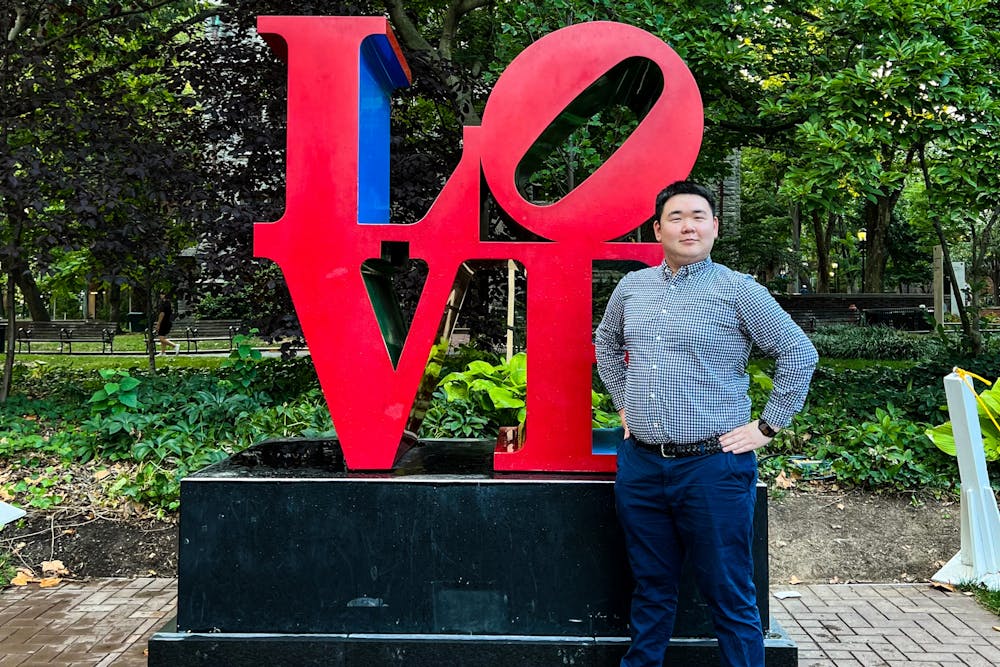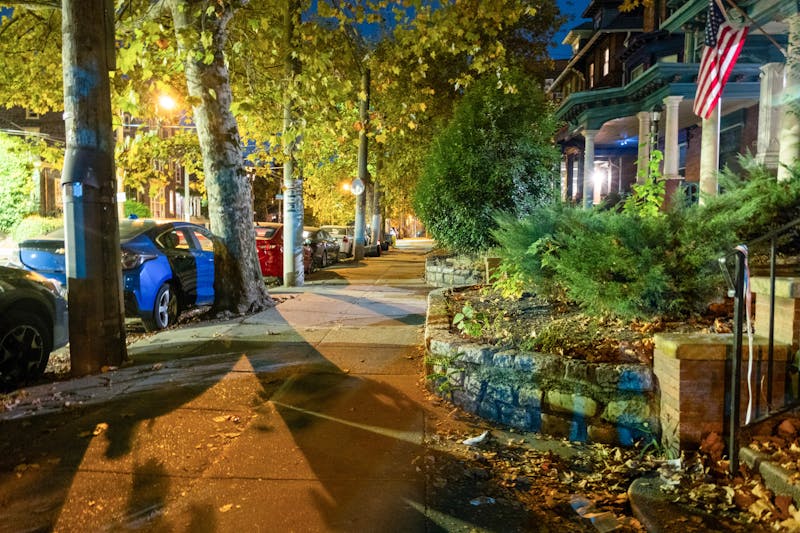
College senior Sam Zou served as an opinion columnist at The Daily Pennsylvanian for two years (Photo courtesy of Sam Zou).
On the first day of college, I was obsessed over my imperfections.
I found myself lacking the confidence to take up new opportunities and meet new people, so I forced myself into many clubs in which I had minimal interest in the name of making new connections. However, I soon had to withdraw from these clubs because I either was not interested in the activity at all or couldn’t make a real bond with the people who shared different interests than mine.
I found myself lacking the attention-to-detail in my work assignments, so I locked myself in a library room for hours to finish an assignment. It was perhaps one of the most inefficient ways to start a college career. Finishing assignments took up so much of my time that I had little time to explore outside the academic realm in my first year.
I found myself lacking the grades to apply to law schools, so I meticulously and anxiously reviewed every comment my professors made on my work to find a way for improvement. But worrying about what had been done and graded did little to help my next assignment in retrospect.
My scarcity mindset always set me backwards instead of helping me find a sustainable solution when challenges arose. I soon realized that when your mind is focusing on what is scarce and lacking, it fails to make an informed and wise decision.
As high-achieving students at Penn, it is hard not to find what we lack when compared to other highly competitive students here. We maximize our time in social and academic activities not because that’s what we wanted, but because our peers are doing the same thing. We use a scarcity mindset to justify our actions.
Another way of understanding scarcity is seeing opportunities as a zero-sum game — that opportunities are finite and we need to outcompete others in order to win. At Penn, I’ve seen my fair share of students who gave 100% on everything they did, be it a team project, an essay, a non-graded group activity, or an exam. In fact, I was also one of them. There’s nothing wrong with being competitive. Competition drives innovation and excellence. But sometimes we could feel bewildered when our goal is unclear. So we put our energy in all the opportunities that face you. So we imagine the world as a finite pie, trying to outcompete everyone else to get a larger share. So we see our peers as potential competitors in the way instead of team members who could offer a fresh perspective or unique skill set to lift you up.
If there’s one thing I could change about my undergraduate years, it would be to shift from an absence mindset to an abundance one. I learned this lesson two years into college the hard way.
In the past, I’ve always joined clubs and met people by looking at what I lacked. I joined professional student organizations because I thought I lacked the know-hows to get a summer internship. I worked in policy research because I thought I lacked the right kinds of backgrounds as a law school applicant. But, the moment when everything changed was when I joined theater and The Daily Pennsylvanian my junior year. It was the first time in college when my decision-making was not based on what I lack, but on what I can abundantly offer and love.
I loved acting in high school, but I put this hobby in the back corner because I thought it was not useful for my future career goals. I love writing, but I was too scared to apply to the DP because I thought I was not good enough.
The scarcity mindset was at work again to deter me from pursuing activities I truly love. But I was glad I eventually applied to the DP and became an opinion columnist. Writing opinion columns never felt like a task. The platform helped me reach audiences beyond my expectations. My peers provided diverse and constructive feedback on my columns that continues to encourage me to think more critically. My writing improves as I was inspired by the many incredible writers who not only offered refreshing content, but also eloquent arguments that challenged my perspective.
When challenges arise, focus on the resources, relationships, and skill sets you already have and maximize them.
I learned to foster collaborative relationships in and outside of the classroom. As a political science major, I cherish every chance I have to talk with my peers coming from different socioeconomic backgrounds, cultures, countries, and faiths. They enriched my understanding of different political systems and grew my empathy for people with different experiences than mine. I learned to listen to others’ input and build on different voices to produce a final product that incorporates everyone’s ingenuity.
I practice gratitude every day to cherish what I have and think about how I can continue to develop these resources. It’s the mindset that what I have is abundant, so I will only pursue things that can make me happier and more fulfilled instead of jumping at every new opportunity at the corner.
I notice the good habits as well as the bad ones. It’s human nature to put a greater emphasis on what could go wrong rather than what is going well. We seldom look past our mistakes and yet we take our triumphs for granted. Instead of focusing on what’s scarce, look at what you already have and think about how you can further improve or expand them.
Happiness is a subjective experience and a mindset. If you look at what you lack, you’ll always be unfulfilled. If you look at what you have, you can always be happier.
SAM ZOU is a College senior studying political science from Shenzhen, China. He served as a deputy opinion editor on the 138th Board. His email is zous@thedp.com.
The Daily Pennsylvanian is an independent, student-run newspaper. Please consider making a donation to support the coverage that shapes the University. Your generosity ensures a future of strong journalism at Penn.
Donate






